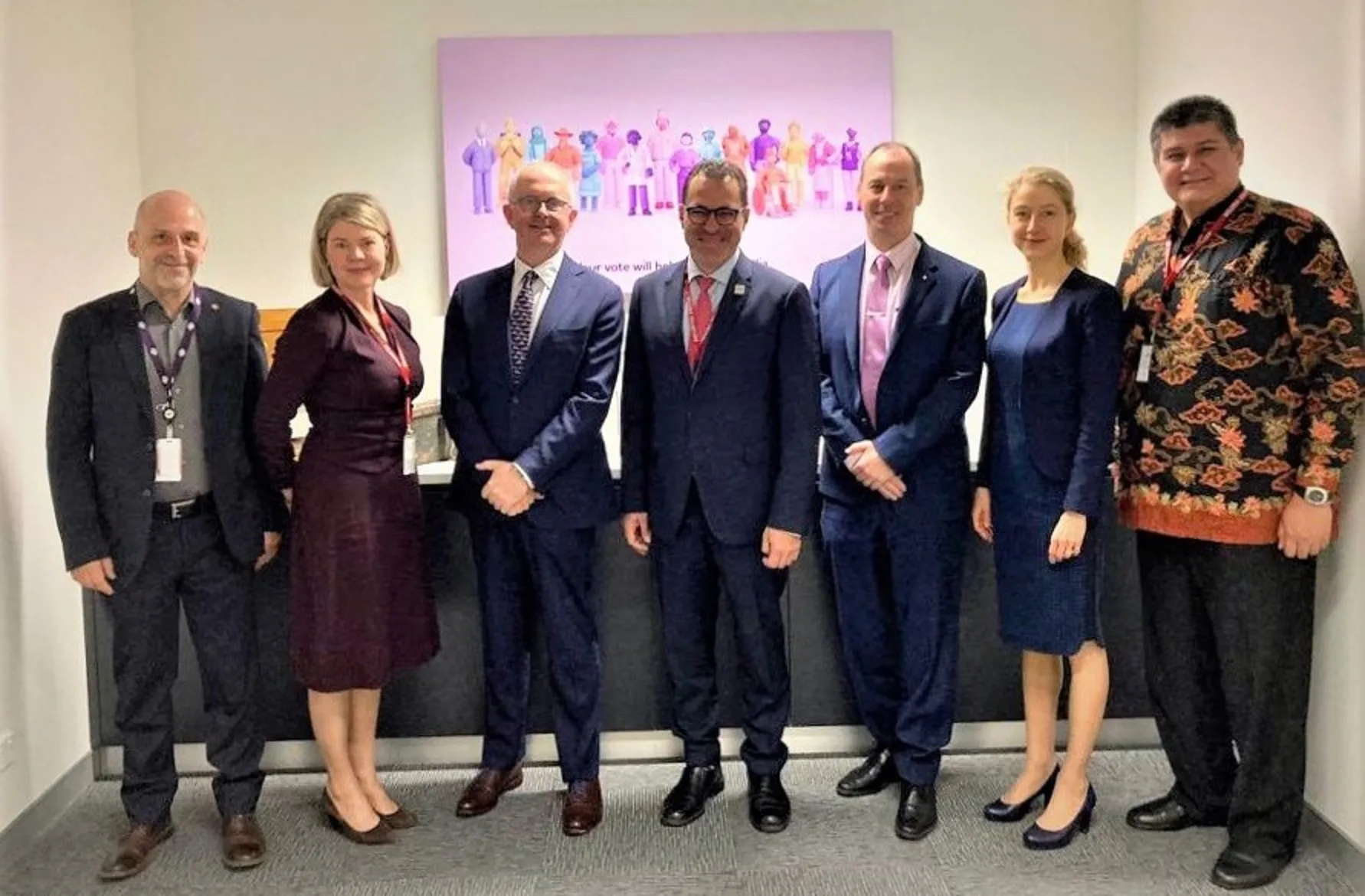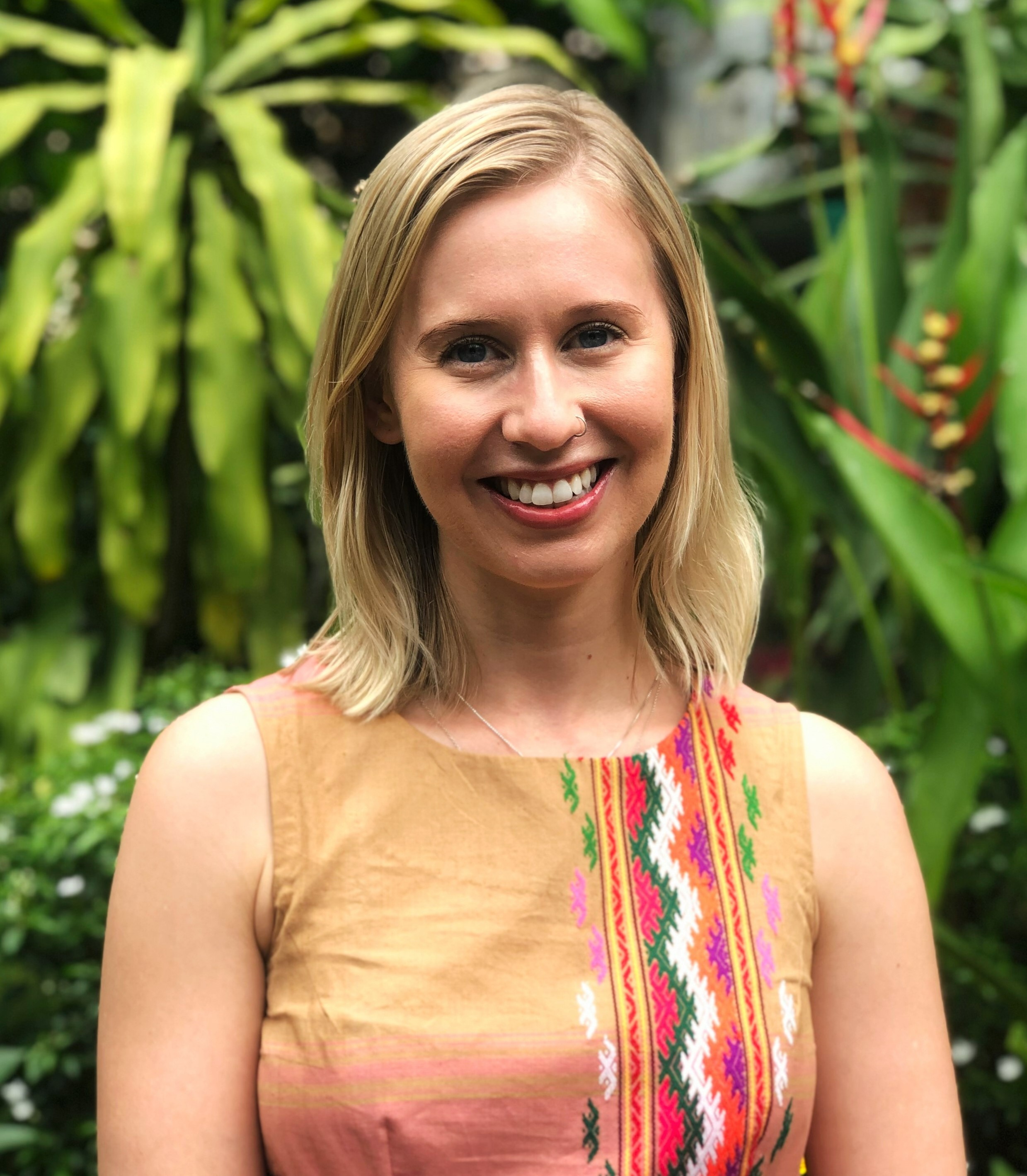Secretary-General Dr Kevin Casas-Zamora visits Australia and India

In a bid to deepen relationships across the Asia-Pacific region, the International Institute for Democracy and Electoral Assistance’s (International IDEA) Secretary-General Dr Kevin Casas-Zamora met with multiple political, electoral and stakeholder groups in Australia and India during his October 2022 mission to the regional headquarters in Canberra.
Consulting across the political and civil spectrum, Casas-Zamora held wide-ranging discussions in Melbourne and Canberra, Australia, and New Delhi, India about the climate of democracy in the region, the importance of robust constitution and policy making, and the role of electoral management bodies.
Speaking at the launch of International IDEA’s Digital Campaigning and Political Finance in the Asia and the Pacific Region report at Melbourne University, Casas-Zamora underscored the authors’ calls for greater regulatory frameworks governing campaigning across the region. The opacity of political financing in the region has come under scrutiny in the region during recent elections.
“What is clear … is that money in politics must be regulated. Inadequately controlled funding of political parties and election campaigns is one of the most widely exploited entry points for narrow private interests to exert undue influence over politics'', Casas-Zamora said.
“Money can significantly distort the democratic process, moving us farther from the goal of equality among citizens and toward a situation where economic means dictate political ends. This in turn can cause lasting damage to the social contract. Citizens are quite adept at noticing when their governments fail to respect their rights and reflect their interests. And when citizens lose confidence that politicians are working to benefit them, this loss of trust can become a serious threat to democracy,” he added.
A meeting with the Joint Standing Committee on Foreign Affairs, Defence and Trade was also on the schedule. The engagement was a valuable opportunity to discuss International IDEA’s submission to the Subcommittee on Foreign Affairs and Aid’s inquiry into supporting democracy in the region.
Casas-Zamora then consulted with several participants from the Department of Foreign Affairs and Trade (DFAT) at a roundtable led by Assistant Secretary Clair McNamara. Covering a range of topics from electoral support in the present geopolitical climate, the decline of democracy globally and the importance of a strong value proposition for democracy, International IDEA also briefed the roundtable on the Institute’s submission to the DFAT inquiry on development policy. In a separate meeting, DFAT’s Deputy Secretary Rod Brazier underscored Australia’s commitment to democracy in the region in the decade ahead, with a particular interest in the intersection of climate change and democracy.
As part of International IDEA’s emphasis on strengthening Institutional relationships with Member States, the Secretary-General also met with several members of the Australian Government. In a discussion with Tim Watts, the Assistant Minister for Foreign Affairs, the Secretary-General heard about the foreign policy priorities of the new government and had the opportunity to outline for the Minister International IDEA’s new digitalisation and democracy workstream.
The digitalisation theme was also front and centre in a meeting with Justin Bassi, executive direction of the Australian Strategic Policy Institute. Both gave their views on the disruptive potential of mis- and disinformation technologies in elections, and the potential for greater regulatory frameworks to combat the worst impacts.
A meeting with the Australian Electoral Commission (AEC) was also on the packed agenda, given the productive relationship between the AEC and International IDEA in 2022. Casas-Zamora heard about the AEC’s implementation of the national 2022 election, which was greatly impacted by Covid-19 constraints on the electoral workforce. The AEC also gave their expertise on counter misinformation in election cycles, including the Commission’s strategy of dividing threats into four categories: mis- and disinformation, foreign interference, cyber security and physical security.
Rounding out the trip, the Secretary-General met with the leadership of the Indian Election Commission in New Delhi. Eager to hear about their work implementing elections in one of the world’s most populous democracies, the discussion gave International IDEA valuable insights into election integrity.




